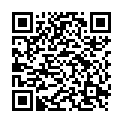|
|
|
| Module code: PIM-WI15 |
|
|
2V+2PA (4 hours per week) |
|
5 |
| Semester: 1 |
| Mandatory course: no |
Language of instruction:
German |
Assessment:
Project work
[updated 08.05.2008]
|
DFI-CMS Computer Science, Master, ASPO 01.10.2018
, semester 1, optional course, informatics specific, course inactive since 31.03.2023
KI743 Computer Science and Communication Systems, Master, ASPO 01.04.2016
, semester 1, optional course, informatics specific
KIM-CMS (P221-0136, P221-0137) Computer Science and Communication Systems, Master, ASPO 01.10.2017
, semester 1, optional course, informatics specific
PIM-WI15 (P221-0136) Applied Informatics, Master, ASPO 01.10.2011
, semester 1, optional course, informatics specific
PIM-CMS (P221-0137) Applied Informatics, Master, ASPO 01.10.2017
, semester 1, optional course, informatics specific
PIM-CMS (P221-0137) Applied Informatics, Master, SO 01.10.2026
, semester 1, optional course, informatics specific
|
60 class hours (= 45 clock hours) over a 15-week period.
The total student study time is 150 hours (equivalent to 5 ECTS credits).
There are therefore 105 hours available for class preparation and follow-up work and exam preparation.
|
Recommended prerequisites (modules):
None.
|
Recommended as prerequisite for:
|
Module coordinator:
Dipl.-Inform. Roman Jansen-Winkeln |
Lecturer:
Dipl.-Inform. Roman Jansen-Winkeln
[updated 08.07.2007]
|
Learning outcomes:
After successfully completing this module, students will have an overview of the existing CMS systems and be able to use them competently. They will be able to work with a CMS, i. e. collect content, customize its appearance and add and develop modules. Students will learn about template languages, skins and scripts and be able to use them. Depending on the application, students will be able to select and set up the appropriate infrastructure, e. g. with proxies, caches or as a server farm. With the topics of search engine optimization, enterprise CMS, Social Software and Web 2.0 they will acquire additional knowledge that they can use appropriately depending on the situation.
The goal of this module is to teach students to evaluate, adapt and use content management systems. In addition, they should also be able to introduce these systems and advise others on their use. Exercises, regular short presentations and project work in teams will help solidify the studentsí knowledge and skills.
[updated 14.05.2025]
|
Module content:
1. Foundation
Plone/Zope/Python
Communication via the web
Representation in the computer
2. Using and adapting a CMS
Hello World: initial content
Template languages, sever-based scripting
Skins
Custom content types
3. CMS infrastructures
CMS operation
Search engines and search engine optimization
User management
Fat clients, single page applications
4. Using CMS
Classic applications
Enterprise CMS
Web 2.0 applications
Financing CMS platforms
Legal framework
[updated 26.02.2018]
|
Recommended or required reading:
Aspeli, Martin: Professional Plone Development, Packt Publishing Ltd., 2007
ASPELI, Martin: Professional Plone 4 Development, Packt Publishing Ltd., 2011
CLARK, Alex / DE STEFANO, John (u. a.): Practical Plone 3, Packt Publishing Ltd., 2009
[updated 26.02.2018]
|
Module offered in:
WS 2017/18,
WS 2016/17,
WS 2015/16,
WS 2014/15,
WS 2013/14,
...
|


